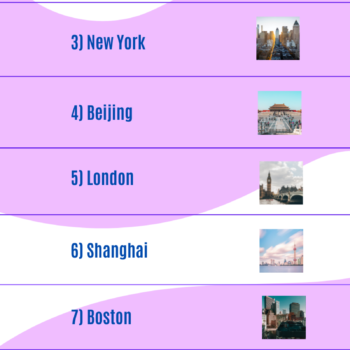As the financial and economic impact of the pandemic has come to the forefront, the importance of a strong healthcare sector and the changes needed to succeed are increasingly emphasized.
Startups are generally well-positioned to respond to dynamic shifts in the market and provide impactful solutions to issues through the use of technology. The pandemic has now forcefully accelerated the pace at which the health industry is needed to run, as well as highlighted players around the world that are ahead of the game. When we discuss the healthcare vertical, it is important to remember that we are not just talking about a “niche industry,” but something that connects to everything in our daily lives. The next wave of healthcare innovation is already here, and the unfolding transformation of the sector, especially towards the digital front, is of interest to us all.

This article will touch on some key aspects of the health startup ecosystem space and provide examples of global ecosystems that are showing positive momentum in their rankings.
Are you interested in startup innovation and entrepreneurship? You can access more reports on global and regional economic development as well as our new Coronavirus Innovation Map that shows the best countries fighting the pandemic and facilitating new developments in the pandemic era.
What Do We Mean By “Health Startup Ecosystem”?
Every year, StartupBlink releases the most comprehensive report of startup ecosystems, ranking 100 countries and 1000 cities. In addition to our annual Global Report, we are able to quantify and categorize the strength of specific startup industries, otherwise known as verticals. There are 11 verticals in total, including health and the recently added COVID-19 vertical that focuses exclusively on the response to the pandemic.
You can read more about each vertical here.
The core goals of health ecosystems are to provide better patient care, reduce costs, and develop new and predictive care models and diagnostics. This is achieved differently in each ecosystem around the world, but it primarily entails leveraging innovation and minimizing expenses through digital solutions and easily accessible telemedicine apps.
How Does a Health Startup Ecosystem Differ From Others?
Startup ecosystems operate in a similar manner to a natural ecosystem. The different players interact with each other, creating dynamic and ever-changing situations. Effectively, both the environment and the players need to adjust to this continuously. Similarly built ecosystems in different parts of the world will face different challenges and evolve in different directions based on the push-pulls, turmoils, support networks, and players present in each one.
While these broad different characteristics can be applied to most verticals or industry niches, the healthcare startup ecosystem specifically is also facing unique challenges due to its nature.
Here are some of the most common issues faced by health startup ecosystems.
Common Issues Faced By Health Startup Ecosystems
For a more in-depth discussion on the common problems faced by startup ecosystems, you can read our article, here.
Institutional Roadblocks
The primary obstacle of health startup ecosystems is opposition and institutional policies implemented across the healthcare sector.
In 2020, the covid-19 pandemic brought a 34% increase in the total amount of funding raised by startups in the healthcare sector. The largest increase came from the North American ecosystem. While this is a massive and well-deserved boost during these times, it also shows the reactionary, rather than proactive, mentality present. Ecosystems in Europe, in particular, have long faced strong opposition and bureaucracy that prohibits innovation. To change, this would require government support and regulations that bring together private entities, startups, and access to funding.
Not Chasing Waterfalls
The healthcare startup industry is less interested in chasing the elusive waterfall or next shiny object. Instead, the focus is on scalable, innovative but solid solutions that touch on a narrow set of objectives which are: cost, care, and access. This doesn’t mean that health tech startups are not aiming for transformation, rather the focus and value propositions need to align with a narrower objective.
Slow and Steady
Most other startup industries are characterized by their explosive growth dynamic and focus on scaling. By definition, they are designed to disrupt the industry and offer something novel. With tech-based startups, this often entails creating a minimum viable product (MVP) that allows you to capture the most insight and data on customer demands with the least amount of effort. The reasoning behind this theory (first proposed by the Lean Startup) has to do with minimizing risk-taking and ensuring a market for your product before starting to scale. In the healthcare startup ecosystem scene, however, requires a notoriously slower and more complicated process. As a result, the focus on explosive growth is not as high.
Complexity of Key Players
Due to the slow and arduous process to take a health-related service or product to market, entrepreneurs and developers in health startups need to keep in mind a number of moving milestones all at once. One common case is focusing exclusively or too much on the evidence and data behind the applications of the product or service. This results in running out of time and funding in the process. Every country has different key stakeholders and approval processes. Thus, conversations regarding approval, insurance regulations, and product clearance need to be discussed simultaneously to avoid costly delays. This creates a more complex situation of key players that needs to be taken into account.
The Role of the Investor
Another area where health startups pose a relatively unique ecosystem culture is the role of the investors. Founders of health tech startups are often already a part of an institution where logistics of patenting and commercializing need to be negotiated before moving forward. Subsequently, investors might be unwilling to collaborate with institutional health tech startups, as the ROI and time delays could make them a less profitable financial decision.
Ecosystems That are Overperforming in Healthcare
With the covid-19 pandemic still underway, the healthcare industry is explored through two distinct verticals: “general health” and “covid-19 health.”
In cooperation with our partners, Health Innovation Exchange and the Moscow Agency of Innovations, we have launched the Coronavirus Innovation Map. The map provides deeper insights and detailed rankings of 80 cities in 32 countries that have become innovation leaders against Covid-19. Find more and download the report here.
Taipei City is one of the rising players in the field of health this year as seen on the 2020 Global Report. It registered a jump of 208 spots overall and claimed a Top 20 position in the health rankings and the Covid Innovation report. This is due to a combination of strong public sector support and collaborative tech-based solutions focusing on digital social innovation.
General Health
- United States
- United Kingdom
- Canada
- Israel
- Germany
Covid- 19 Health
- United States
- Israel
- Canada
- Belgium
- Switzerland
Learn more
Startup Blink and our network of global partners can provide in-depth insights into a range of verticals to serve the market needs of your startup ecosystem and provide guidance for future steps. Our Startup Blink PRO clients can access fully customizable data on vertical ecosystems and filter results by population and geographically specific data.
We are constantly looking for partners to create accurate and in-depth reports on specific verticals and consolidate your authority with branded maps covering all aspects of the specific startup industry. Get in contact here.









